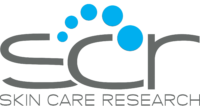
Eczema is a common skin condition that affects millions of people in the United States. Also called atopic dermatitis, doctors aren’t sure exactly what causes it, but research supports that a combination of genetic and environmental factors may be at the root of the problem for many.
What Is Eczema?
Eczema is characterized by a rash that’s itchy and warm. Sometimes blistering will occur if you scratch the affected areas. Eczema is a chronic condition that’s not contagious.
Both children and adults can have eczema. For babies and young children, eczema appears as a rash. The skin looks dry and flaky in older children. Adults typically have scaly, thick skin patches. Atopic dermatitis is a common form of eczema that often runs in families, but there are other types as well as different treatment options.
What Causes Eczema?
Research suggests that eczema is caused by a genetic mutation that blocks your body from retaining moisture and combating harmful bacteria. Research indicates that you’re at a higher risk for eczema if you have relatives who have or had:
- A history of eczema
- Asthma
- Food allergies
- Hay fever or other seasonal allergies
Is Eczema Genetic?
A research study published in the journal Nature Geneticsreported that mutations found in the CARD11 gene can lead to eczema. Researchers found that disruptions in cell signals were caused by the mutations. As a result, protein production was affected, and this lead to a disruption in the body’s immune response to infections.
The lack of proper protein production caused by the genetic mutation prevents the body from keeping the moisture it needs, which can lead to the development of eczema.
Options for Eczema Treatment
Although there is currently no cure for eczema, there are different treatments that can help, which include:
- Antibiotic topical creams
- Corticosteroid topical creams that contain steroid hormones
- Oral corticosteroids prescription medications
If you have a severe case of eczema, your doctor can recommend applying a topical cream and then bandaging the affected area with medical gauze.
Light therapy, also known as phototherapy, may also help relieve eczema symptoms if topical treatments aren’t successful. Also, eczema clinical trials are another treatment avenue to think about if other therapies don’t produce successful results.
If you’re still searching for the best treatment option for atopic dermatitis, need affordable eczema treatment options, or are looking for payment to participate in a study, sign up for a future clinical trial today. With more than 25 years of experience in performing dermatological clinical trials — our highly trained team is dedicated to making sure we meet all clinical guidelines and that patient rights of each person are always protected. Call 561-948-3116 or fill out the form on this page to learn more about our clinical trial options today. We’re happy to address any questions or concerns you may have.
